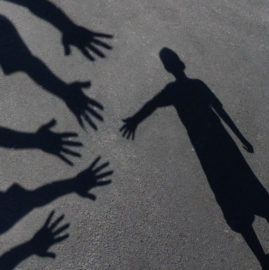Education for Child Abuse Counselors
Education for Child Abuse Counselors will provide you the necessary requirements to be able to work effectively and safely as a professional counselor. Working with children in the role of child abuse counselor is one of the most sensitive and important careers possible.
Child abuse counselors must be licensed mental health providers with professional experience working with patients who have sustained physical, sexual, and/or emotional abuse. These specially trained counselors may work with traumatized children or adult survivors of childhood abuse. Some mental health counselors will focus on counseling abusers. The methods the counselor will use depend on the clients seeking therapy.
Young children often respond well to play therapy. Parents have grown accustomed to asking for play therapy when that option is available and the counselor is agreeable. Multiple therapy modalities can be implemented, ranging from less structured play therapy to more structured interventions. Cognitive therapy may also be employed – this is, among other things, a way of helping children understand that they didn’t deserve the abuse. Children may need not only permission to discuss the abuse but the vocabulary to do so.
A counselor who works with children may use assessments like the Trauma Symptom Checklist for Children or Children’s Impact of Traumatic Events Scale. The counselor will set therapy goals that are appropriate to the child’s age or development level.
Counselors may be part of a unified team that includes key social workers, nurses, and doctors. Often, the family of the client is supportive and wants to be involved in the therapy process. In cases like this, therapy will be conducted while involving the family members and children.
Children who have been traumatized often will experience anxiety or separation disorders; some have post-traumatic stress, or somatization disorders (This disorder can sometimes occur, and manifest, when a person feels extreme anxiety about physical symptoms such as pain or fatigue. The person may experience intense thoughts, feelings, and behaviors related to the symptoms that interfere dramatically with their daily life).
Counselors can help children through teaching them methods of stress reduction and relaxation. Counselors who know that they want to specialize in abuse counseling may seek employment at clinics or centers that specialize in this area.
The Need for Counseling All Survivors of Abuse
Many survivors of abuse are now adults; this represents another major segment of the population that needs treatment. Traditionally, sexual abuse was underreported; unfortunately, the perceived stigma of reporting kept many people from doing so. Therefore, many victims have not received the treatment they need.
Very often, adult survivors may have developed a variety of mental health issues as a result of the past abuse. Often, there is the manifestation of anxiety and other neuroses. Some people are overprotective of their own children while others are detached; they may be unsure of what constitutes appropriate affection or they may simply find affection triggering. Counselors are needed to help patients discover connections, or correlations, between their current issues and abuse sustained in the past.
The Education for a Child Abuse Counselor
In order to be licensed as a child abuse counselor, it is required that an individual obtain at least a Master’s degree. Some pursue a doctoral degree to further their education and attain the highest professional clout they can.
Many candidates pursue Master’s degrees in counseling or related fields such as social work, marriage and family therapy, or counseling psychology, where the median salary in 2015 was between $41,880 and $45,900 according to The Bureau of Labor Statistics.
It takes quite a bit of education to become a licensed counselor, but a person can begin exploring the field by volunteering at a crisis shelter.
Licensing and Certification
States usually require that child abuse counselors and other mental health providers be licensed according to the standards of that state. All states usually require an examination and a period of supervised practice before the candidate ascends to the highest level of licensing. A criminal background check is usually required. Some states will allow for licensing counselors at a lower level while they are completing their supervision hours. Child abuse counselors are able to proactively pursue other voluntary certifications in areas such as play therapy.

